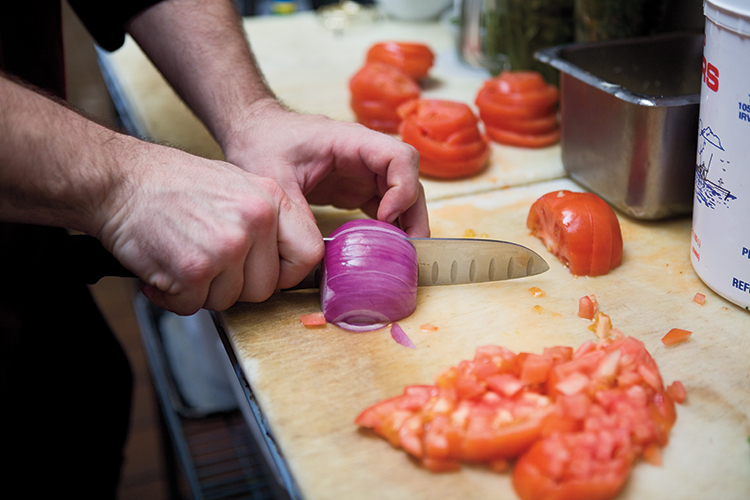Home > Arkansas > Arkansas Farm to Table > Arkansas Grown Provides Farm Fresh Connection
Arkansas Grown Provides Farm Fresh Connection

The local food movement is in full swing, and the Arkansas Agriculture Department has launched renewed efforts to connect producers directly with customers through its Arkansas Grown program. Some producers, restaurants and consumers are getting the local food movement fever all over again, while others are experiencing it for the first time.
Choosing Local
“We’ve always had an interest in sourcing food locally, but just didn’t know how to go about it,” says Michael McNamara, food resource director for Mount Magazine State Park. “We found out about the Arkansas Grown program at a food show, and they helped us make the connections with farmers we needed. Once we looked at the pricing and benefits that it would bring, we decided to go for it.” McNamara now works with two farmers who provide the state park with watermelons, cantaloupe, cucumbers, tomatoes, okra, green beans and more. He’s been pleased with the quality of the produce.
“We actually pay less for our cucumbers and watermelons, and they last longer than what we used to get from our distributors,” he says. “We’re hoping to expand our participation to include all the state parks.”

Expanding the Network
Even restaurants that have been buying local long before Arkansas Grown existed are experiencing renewed excitement about the possibilities it creates.
“We’ve been buying locally for more than 30 years,” says Mark Abernathy, owner of Red Door and Loca Luna in the Riverdale neighborhood of Little Rock. “It’s becoming easier and easier, and that’s what’s really great.”
Abernathy says the Arkansas Grown program is a smart, organized way to connect restaurants and farmers.
“It’s hard for us to find them (farmers), and they don’t know where we are,” Abernathy says. “We’re covered up with farmers, and we’ve just got to do a better job of networking. So it’s critical that somebody has taken the lead, especially somebody like the Agriculture Department that has the resources to put out a publication and gather data and names — that’s really going to be important.”
Jack Sundell, co-owner of The Root Café in downtown Little Rock, says although he was sourcing locally before the program began, Arkansas Grown has attracted more farmers to try a direct marketing approach.
“Moving forward, it is going to be a big part of our ability to find new farmers and producers,” Sundell says. “It’s something we’re happy to have available.”

Educating Consumers
Sundell says he is also grateful that the program seeks to educate consumers on local food.
“It’s really exciting to see the Agriculture Department heading this Arkansas Grown initiative,” Sundell says. “Consumer education is such an important part of any local movement being successful, and Arkansas Grown is a great way for consumers to get educated on how and why to purchase local foods.”
To facilitate consumer education, the Agriculture Department is using strategic partnerships and special events. Sundell says these efforts help consumers adopt the perspective he and Abernathy have held for years — that local products are worth the extra effort.
“Local foods are more delicious, and you get so many more options,” he says. “You can ask the farmer directly how it was raised, and you’re also supporting the local economy.”



